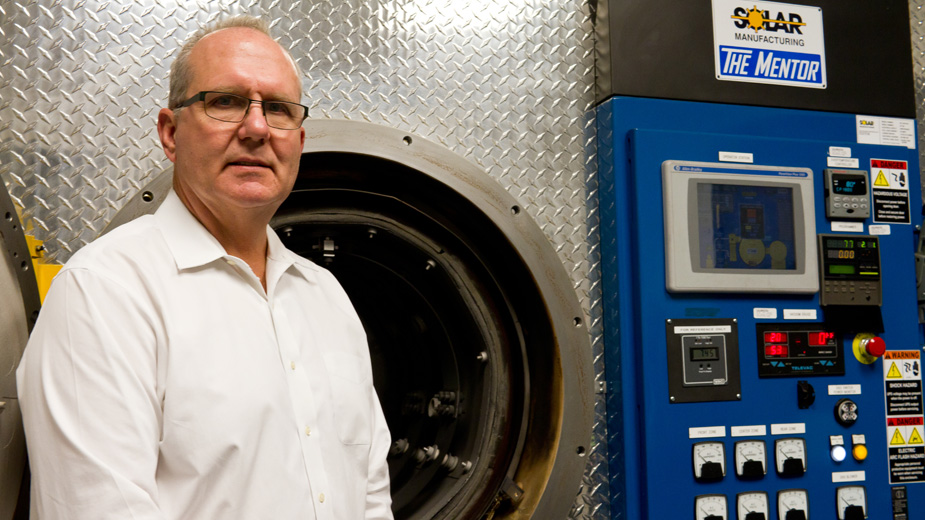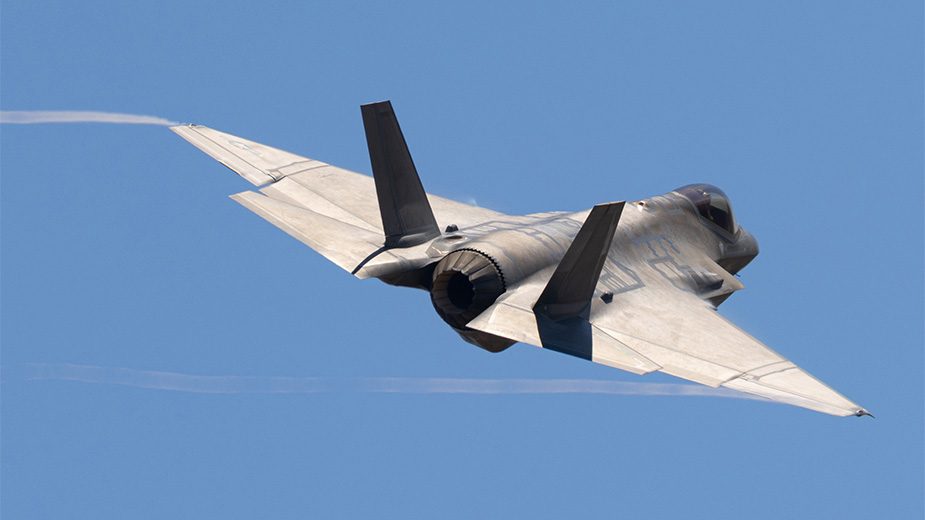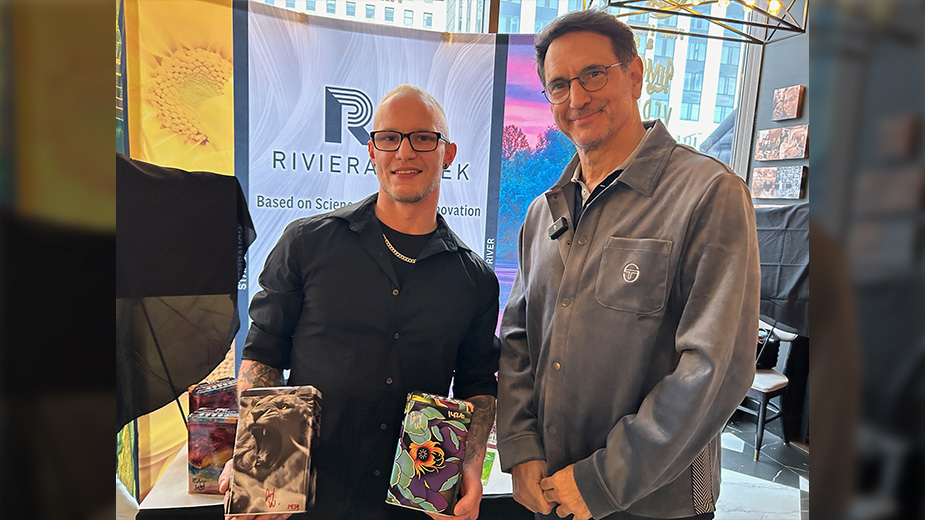Solar Atmospheres Shines in Hot Titanium Market
HERMITAGE, Pa. – Sometime this month, the 18,000-square-foot addition to Solar Atmospheres of Western PA will open its doors and welcome a permanent tenant.
The tenant is a 48-foot-long commercial vacuum furnace – the largest of its kind in the world – and evidence of a long-term commitment of a company that has joined the core of Hermitage’s industrial sector.
“We started here with 18,000 square feet 16 years ago, and we were wondering what we would do with that,” recalls the president, Robert Hill. “Now, we’re at 80,000 square feet and have just added another 18,000. This is our largest facility with our largest equipment.”
And he doesn’t expect the growth to stop here. “We’ve acquired eight more acres around the corner for future expansion,” Hill says.
Solar Atmospheres, just off Broadway Avenue in Hermitage, Pa., provides heat-treating services for metals such as titanium and various types of tool steel. The service is an important step in the manufacturing process because metals often must be heat-treated to harden – or in some cases, soften – their properties for commercial use.
Hill says the $10 million expansion was constructed specifically to house the 48-foot-long furnace needed to fill orders from a contract to heat-treat tubing used in the production of nuclear energy. “We’re also going to fill it with other orders, too,” he says. “Whenever we build a large furnace, we always wish we had a larger one.”
This explains the company’s sustained, measured expansion from 16 years ago when it purchased an old warehouse. The warehouse built to stock steel products was converted into one of the world’s largest hubs for commercially heat-treated metals. As of now, Solar Atmospheres houses 16 vacuum furnaces – soon to be 17 – and three air furnaces.
The Hermitage plant employs 52, Hill says, and at least 10 more will be hired once the new furnace is operational.
Driving business is the commercial aerospace industry and its increased reliance on titanium as a preferred metal for aircraft construction. “Our business is primarily titanium,” Hill says, noting that the metal accounts for between 60% and 70% of sales. However, Solar Atmospheres processes stainless, alloy and high-speed steels used in a variety of applications.
Just how many pounds of titanium move through the plant each year? Hill says he’s not exactly sure, but in 2009, he calculated that the Hermitage plant that year processed the equivalent of one-tenth of the world’s entire titanium production. “We were awarded the International Titanium Association Award because we built furnaces that accommodate their needs,” he says.
The volume of titanium has since increased as major producers and sources that require vacuum heat-treating turn to Solar, Hill reports. Two of the largest producers in the world have a presence in the northeastern Ohio and western Pennsylvania, which makes Hermitage the ideal site to operate the plant.
Alcoa, which recently acquired RTI International Metals Inc., manufactures titanium billets and ingots at its manufacturing site in Niles, while Timet operates a titanium production plant in Toronto, Ohio.
“This is the largest plant in our company,” Hill says of the Hermitage operation. Solar Atmospheres has heat-treating operations at its headquarters in Souderton, Pa., near Philadelphia; Fontana, Calif.; and just recently opened a new plant in Greenville, S.C. While the Souderton plant has more furnaces, Hermitage has the largest, allowing it to process more orders at one time than the others.
“The facilities in the East and in California are more apt to do parts,” he says. “I’m more in the raw materials world.”
Metal is transported in from the source – Alcoa’s titanium plant in Niles, for example – in the form of plate, sheet, billets, parts or ingots, Hill says. All of the furnaces perform essentially the same function, but they vary in size. The objective is to take the material – in this case, titanium – and use the vacuum heat-treating process to remove elements such as hydrogen.
“We heat the material in a totally inert atmosphere without oxygen,” Hill says. The process reaches post-production processing, such as machining or grinding. “It adds value in the end,” he says. “There’s less downstream processing.”
The furnaces are large round chambers that resemble cisterns turned on their sides – the largest is 36 feet long. Large doors akin to tank heads open at both ends, so as one batch of finished product moves out, another is loaded for its treatment.
Ed Burnett, shift supervisor, is busy placing electrical nodes on what is termed a “dummy” – a block of titanium that will be loaded into the furnace along with the material scheduled for processing.
Dummy blocks are used because connecting the electrical nodes to the pieces being treated could damage the integrity of the material. In this way, operators gauge the temperature of the metal while it’s treated and monitor the temperature inside the furnace.
“These particular pieces will be in the furnace for about 10 hours,” he says. Usually, titanium is treated at 1,345 degrees while thicker billets might be processed at 1,400 degrees. The furnaces have the capacity to reach 2,400 degrees. The large volumes help with efficiency.
“What I can do in one load may take another to do in 10 loads,” Hill says.
Once the material has been treated, it’s “quenched,” or cooled with inert gasses such as nitrogen and argon. “It’s an environmentally friendly and clean process,” Hill says. “That’s the kind of equipment we want to operate here.”
Perhaps the company’s work with the highest profile is performing heat-treating services for the Boeing 787 Dreamliner. Solar Atmospheres treats titanium seat racks for the aircraft, Hill reports.
A single 36-foot long furnace is dedicated entirely to the Dreamliner work, Hill says. The 30-foot-long components are extruded in Houston and then sent to a plant in Kentucky where laser welding is performed on the part. “After the welding, it comes to us,” he says. Once the part has been treated, a fluorescent dye is applied to the surface and the seat rack is inspected in a dark room. Here, the fluorescent dye illuminates any deficiencies.
“We treat three linear miles of seat track a month,” Hill says.
Gary Gulla, assistant city manager of Hermitage, relates that Solar Atmospheres is one of those great success stories the city likes to highlight. “They took over a warehouse that had maybe two or three employees and have expanded several times,” he says.
Hermitage is impressed with the company’s dedication to its workforce and community, Gulla says. “They’ve cleaned up part of this area, demolished an older building at the site. They’re a real quality company,” he says.
Pictured: Solar Atmospheres will open an 18,000-square-foot addition to house a 48-foot-long furnace, says Robert Hill.
Copyright 2024 The Business Journal, Youngstown, Ohio.



